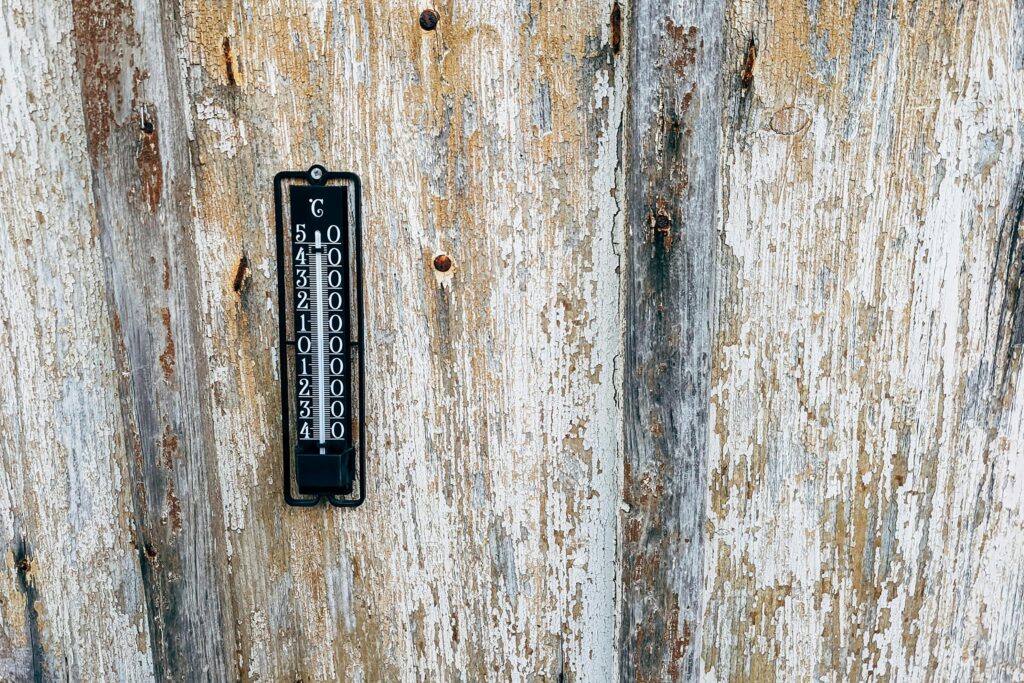
How to Determine the Right HVAC Size
When it comes to HVAC systems, size really does matter. An HVAC system that’s too small will struggle to keep your home comfortable, while an oversized system can lead to higher energy bills and wear out quicker. So, how do you find the perfect size for your Philadelphia home? Here’s how you can do it.
Consider the Square Footage of Your Home
The first step in determining the right HVAC size is to look at the square footage of your home. This isn’t as complicated as it sounds. All you need is a tape measure and a bit of patience. Measure the length and width of each room, multiply these numbers to get the square footage, and then add up the totals for all the rooms. Don’t forget to include hallways, staircases, and any other areas that require heating or cooling. This total gives you a baseline for your HVAC size needs.
More Detailed Help: Square Footage Calculator:
Understand the BTU Rating
Once you have the square footage, you’ll need to understand BTUs – British Thermal Units. BTUs measure the heating or cooling capacity of an HVAC unit. Generally, you need about 20 BTUs for every square foot of living space. So, if your home is 1,500 square feet, you would need an HVAC system with a capacity of about 30,000 BTUs. This is a rough estimate and other factors can influence this number, but it’s a good starting point. For a more appropriate estimate, click here.
Factor in the Philadelphia Climate
Philadelphia’s climate plays a big role in determining the right HVAC size. We experience hot, humid summers and cold winters. The weather is absolutely a rollercoaster that can change by 30 degrees within a week. This means your HVAC system needs to handle both extremes. In areas with more severe weather, you might need to adjust your BTU calculations to account for the additional demand on your system. For Philadelphia, adding about 10% more BTUs to your estimate can help ensure your home stays comfortable year-round.

Account for Your Home’s Insulation
Insulation is another crucial factor. Well-insulated homes retain heat in the winter and keep it out in the summer, reducing the workload on your HVAC system. If your home has poor insulation, you’ll need a more powerful HVAC unit to maintain comfort. Check your attic, walls, and windows for proper insulation. If your home isn’t well-insulated, consider upgrading it before choosing your HVAC size – it can save you money (a lot) in the long run.
Assess the Number of Windows and Their Efficiency
Windows can significantly impact your HVAC needs. Homes with lots of windows, especially older or single-pane ones, can lose a lot of heat in the winter and gain it in the summer. This can make your HVAC system work harder. Modern, energy-efficient windows help mitigate this effect. When determining HVAC size, consider both the number and efficiency of your windows. More or less efficient windows may necessitate adjusting your BTU estimate up or down accordingly. If you feel the temperature drop in certain areas of your house, it may just be because of your windows or doors.

Take Note of Your Ceiling Height
Standard ceiling heights are around 8 feet, but if your home has higher ceilings, it can affect your HVAC needs also. Higher ceilings mean more space to heat or cool, which can increase the BTU requirements. For homes with ceilings higher than 8 feet, you may need to increase your HVAC size by an additional 10% for each foot over the standard height. This ensures that your system can handle the extra volume of air.
Evaluate the Number of Occupants
The number of people living in your home also impacts your HVAC sizing. More people generate more body heat, which can affect cooling needs in the summer. Conversely, a house full of people can be warmer in winter, slightly reducing heating needs. As a rule of thumb, add 600 BTUs per additional person beyond the first two occupants. This helps your HVAC system account for the extra heat generated by a full household.
Consider Heat-Generating Appliances
Don’t forget about appliances. Kitchens, in particular, are full of heat-generating appliances like ovens and stoves. If you cook a lot, your kitchen might need extra cooling in the summer. Similarly, home offices with multiple electronics running can also contribute to the heat load. When calculating your HVAC size, think about these areas and consider adding a few extra BTUs to account for their heat output.
Use a Professional HVAC Load Calculation
Finally, while these tips give you a good start, the most accurate way to determine the right HVAC size is to have a professional perform a load calculation. HVAC professionals use detailed methods like the Manual J calculation, which considers all the factors we’ve discussed, plus more, to determine the exact HVAC size you need. This ensures you get a system that’s perfectly suited to your home’s unique requirements.
Finding the right HVAC size for your Philadelphia home might seem daunting, but breaking it down into these manageable steps can make it easier. By considering your home’s square footage, the BTU rating, local climate, insulation, windows, ceiling height, occupants, and appliances, you can get a pretty good idea of your needs. And for the most precise measurement, don’t hesitate to call in a professional. After all, a properly sized HVAC system is key to a comfortable, efficient home.
Consequences of an Oversized or Undersized HVAC Unit
Too big or too small, and you’ll face a host of problems. Let’s dive into the consequences of an oversized or undersized HVAC unit.
Short Cycling with Oversized Units
If your HVAC unit is too big for your home, it can lead to a problem called short cycling. This means your system turns on and off frequently. While this might not sound too bad, it actually is. Short cycling prevents the unit from running long enough to properly dehumidify your home. You might feel cool, but you’ll also feel sticky and uncomfortable. Plus, this constant on-and-off action can wear out your system faster, leading to more frequent repairs and a shorter lifespan. In other words, bigger is not always better when it comes to HVAC units.
Increased Energy Bills
An oversized HVAC unit can also mean higher energy bills. These larger units draw more power each time they start up. Since they cycle on and off more frequently, they end up using more electricity. You might think a bigger unit cools or heats your home faster, but the energy inefficiency will be evident in your monthly bills. Imagine trying to water a small plant with a fire hose – it’s overkill and wastes resources. That’s what an oversized HVAC unit does to your energy consumption.
Uneven Temperature Distribution
Oversized units often lead to uneven temperature distribution throughout your home. You might find one room freezing while another is uncomfortably warm. This happens because the system cools or heats the air too quickly and then shuts off, without distributing the conditioned air evenly. You end up with hot and cold spots that make your home less comfortable. Consistent comfort is what you want, and an oversized unit just can’t provide that.
Excessive Wear and Tear
Short cycling not only increases your energy bills but also puts excessive wear and tear on your HVAC system. Each start-up and shut-down cycle stresses the components, leading to more frequent breakdowns. This means you’ll spend more on repairs and might even need to replace your system sooner than expected. Regular maintenance can help, but it won’t completely mitigate the damage caused by an oversized unit. Over time, this can become a costly problem. If a problems persists and you are in need of a new HVAC unit, check out some affordable prices.

Underperforming Undersized Units
Now, let’s talk about undersized units. An HVAC system that’s too small for your home will struggle to maintain the desired temperature. It will run constantly, trying to keep up with your cooling or heating demands. This constant operation not only wears out the system quickly but also fails to keep your home comfortable. You’ll find that your home is never quite as cool in the summer or as warm in the winter as you’d like it to be.
High Energy Costs with Undersized Units
An undersized HVAC unit can also drive up your energy costs. Since it runs continuously to meet your temperature needs, it consumes a lot of electricity. Unlike an oversized unit that wastes energy through short cycling, an undersized unit wastes energy by running non-stop. This continuous operation leads to high energy bills without delivering the comfort you expect. It’s a double whammy: you pay more for less comfort.
Increased Stress on Components
Continuous operation of an undersized HVAC system puts tremendous stress on its components. The motor, compressor, and other parts have to work harder and longer, increasing the likelihood of breakdowns. Frequent repairs and a shorter lifespan for your unit become inevitable. You might think you’re saving money by getting a smaller unit, but the increased maintenance and early replacement costs can add up quickly.
Poor Indoor Air Quality
Undersized units also struggle with maintaining good indoor air quality. Since they run continuously, they may not have enough time to dehumidify the air properly. This can lead to higher humidity levels in your home, which is not only uncomfortable but can also encourage mold and mildew growth. Additionally, these units may not filter the air as effectively, leaving you with more dust, allergens, and pollutants circulating through your home. Good air quality is crucial for a healthy home environment, and an undersized unit can compromise that.
Longer Recovery Times
Another downside of undersized HVAC units is the longer recovery times. If you set back your thermostat while you’re away or during the night, an undersized unit will take much longer to bring your home back to a comfortable temperature. This can be particularly frustrating on extremely hot or cold days when you just want to get comfortable quickly. It’s like trying to fill a pool with a garden hose – it takes forever and leaves you feeling impatient and uncomfortable.
Potential Health Issues
Both oversized and undersized HVAC units can lead to potential health issues. For oversized units, poor humidity control can create a breeding ground for mold and mildew, exacerbating allergies and respiratory problems. On the other hand, undersized units that fail to maintain comfortable temperatures and proper humidity levels can also contribute to health issues. Extremes in temperature and humidity can affect your well-being, especially for those with existing health conditions.
Conclusion
In summary, the size of your HVAC unit significantly impacts your comfort, energy bills, and system longevity. An oversized unit may lead to short cycling, higher energy costs, and uneven temperatures, while an undersized unit can result in continuous operation, poor air quality, and increased wear and tear. Ensuring your HVAC system is properly sized is crucial for a comfortable, efficient, and healthy home in Philadelphia. Always consider consulting with a professional to get the perfect fit for your HVAC needs.

